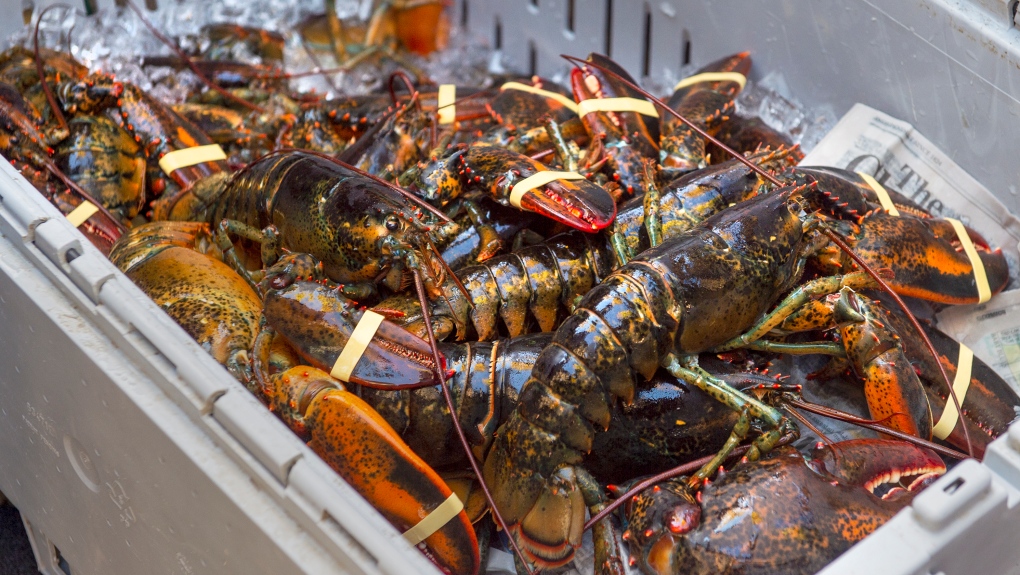Latest News
- More than 30,000 SUVs and pickup trucks recalled in Canada due to increased crash risk
- L.L.'s painful death: Ontario court enters critical phase with new digital evidence
- Woman entrepreneur scammed in Mount Pearl; police warn as holidays approach
- Summer McIntosh breaks record at U.S. Open; one step closer to world record
- Victim's family outraged; Ryden Bragden's killer will not go to prison
Latest Ads
-
Jasmine Jewel
Call
-
Omidan group
Call
-
Amir Madanpour
Call
-
Dimo studio
Call
-
Yorkacademy
Call
-
Maryambagheri
Call
-
Shishlix Restaurant
Call

More than 50 native fishermen in the Maritimes are being prosecuted by the police or in court.
On September 17, 2020, the first Sipekne'katik First Nation issued five lobster fishing licenses to its members, asserting that they could harvest and sell their lobsters outside of the federally regulated fishing season. This decision came exactly 21 years after the Supreme Court of Canada affirmed the Indigenous people's right to pursue a moderate livelihood in the eastern regions of Canada. However, the interpretations of this historic decision continue to be a subject of controversy.
In the months when the "moderate livelihood" lobster fishing began, there were intense protests and clashes over lobster harvesting. The fishing and violent reactions to it resulted in criminal charges and civil lawsuits. By December 2022, federal conservation authorities had seized more than 7,000 lobster traps as other Indigenous bands also engaged in the exercise of their moderate livelihood resources. However, federal authorities have remained largely silent regarding the allegations related to Indigenous lobster fishing, seal hunting, and elver fishing.
Last month, a Mi'kmaq journalist named Morin Gugu examined the provincial court records to compile a list of 54 Mi'kmaq lobster harvesters from Nova Scotia and New Brunswick who are currently in court. About half of the accused individuals intend to defend themselves in court, arguing that their constitutionally protected moderate livelihood rights allow them to harvest and sell lobster at any time and place.
The federal Department of Fisheries released a statement confirming the accuracy of the list of accused harvesters prepared by Gugu. The department's spokesperson, Lauren Sanki, stated, "We recognize that fishing is of great social, cultural, religious, and economic importance to many Indigenous communities, and we remain committed to ensuring the rights of Indigenous fishing, including the right to a moderate livelihood."
"Our approach to fisheries law enforcement focuses on the preservation of natural resources, transparent and predictable management, and opportunities for reconciliation," she added.
Among the individuals facing various charges, there are members of six Mi'kmaq First Nations in Nova Scotia and one in New Brunswick. The charges include violations of communal licenses, fishing without licenses, fishing out of season, interactions with fisheries officers, and elver fishing in violation of the 2020 regulations.
In May, two Mi'kmaq fishermen from Pictou Landing First Nation were convicted of lobster fishing disputes from 2019. Other cases are also ongoing, with many of them originating before the unregulated fishing activities in 2020 drew national attention. In several instances, legal notices have been served, asserting that their treaty rights have been violated. Naomi Metallic, a law professor at Dalhousie University in Halifax, has argued that the federal government should negotiate with the First Nations rather than take legal action against Indigenous harvesters.
She said, "This issue consumes vast judicial resources." Metallic, who holds the Canada Research Chair in Aboriginal Law and Policy at the Schulich School of Law, continued, "It needs to be at the negotiating table."
Metallic explained that the problem here is that federal governments have consistently failed to define how the moderate livelihood fishing agreements will look. She stated in a recent interview, "It's an unsettled treaty right." She added, "The government has tried to push this issue down the road or avoid it... Canada doesn't have a plan, and the Mi'kmaq are saying, 'You're not upholding your commitments.'" She noted that so far, despite Fisheries and Oceans Canada negotiating interim agreements with First Nations, a permanent resolution has always been left pending. However, after 24 years of waiting, some First Nations are moving forward with their fishing plans.
The Marshall decision by the Supreme Court of Canada in 1999 declared that Mi'kmaq, Maliseet, and Passamaquoddy bands in eastern Canada could engage in "moderate livelihood" fishing, although two months later, the court clarified that the treaty rights must be regulated federally. The Marshall decision, named after Donald Marshall Jr., a Mi'kmaq activist from Nova Scotia, compelled the federal government to spend millions on boats and equipment for Indigenous communities. On Friday, the Fisheries Department announced that it has been working on implementing treaty rights through several other programs. The department's statement highlighted that these actions have helped increase Indigenous participation in the commercial fishery and contribute to the pursuit of a moderate livelihood.
Between 2017 and 2023, the department signed seven interim agreements with 15 First Nations. In March 2021, the Department began approving temporary moderate livelihood fishing plans prepared by First Nations. However, federal authorities have made it clear that any fishing activities must adhere to federally regulated seasons, and some First Nations have rejected the agreements, claiming that the fishing season does not align with the unified size imposed by the Marshall decision. After 24 years since that historic decision, the stage is set for these disputes to reach the country's Supreme Court.
Suggested Content
Latest Blog
Login first to rate.
Express your opinion
Login first to submit a comment.
No comments yet.


































